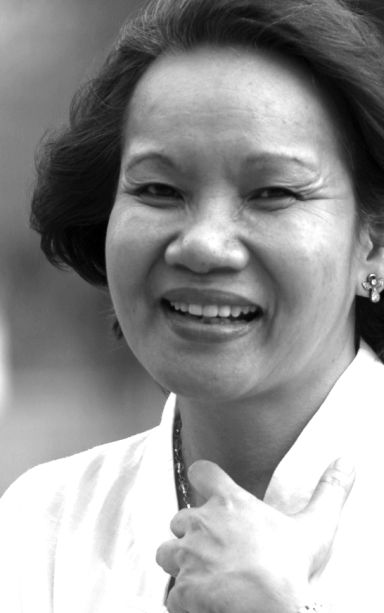
LOGARTA
Since we just celebrated the women’s vote we would like to inspire young Cebuanas with the accomplishments of Ines Villa-Gonzalez.
She has been described in the Heritage Cards prepared by the Cebu Provincial Women’s Commission and the Legal Alternatives for Women Center, Inc. as “among the earliest known advocate for the woman’s vote in the .”
She completed her graduate degrees in sociology and education in the United States and Spain.
She had been awarded the Premio Zobel “for excellence in Spanish literary writing for her book Filipinas en el Camino de la Cultura.”
And she wrote the story of this experience in The Philippine Epic of Democracy.
Here she declared: “For decades the Filipino Women had been acquiring a good education and training in the various professions and trades, dedicating themselves to worthwhile social, industrial, economic, cultural, and scientific advancement of the nation.
Yet women had been deprived of suffrage, although they are part and parcel of the homes, communities and the nation.
Their indispensable participation is vibrant in all public affairs and nationalistic activities. In the realm of politics the women had been discriminated against and regarded as minors or immature and incapable.”
On the other hand, on Labor Day week, we remember Fr. Rudy Romano’s commitment to those in the peripheries.
He was often with the urban poor to listen to their current concerns.
He joined them in their struggles, marching with them as they asserted their rights. For this he was arrested.
Those in the march accompanied him and refused to leave without him.
He took great risks in supporting workers’ right to organize in the martial law period.
The commitment and presence of religious in efforts towards social change in a Catholic country can be very crucial.
It can prevent violence from both sides: protesters and those in power. Rudy Romano confronted great powers; he disappeared. It is up to us to make him present until now.
Women workers experience the same problems that workers today are fighting for and more.
While there is the demand for higher wages, a living wage, many women are into unpaid farm work because women will do anything to provide food for their children.
Most of the workers in the informal sector are women, showing that the formal sector is not that open for them.
Before, of them it had been said: “Last hired, first fired.”
They are not given the priority because many think that their earnings are not as crucial as the perceived “main income earner” males.
They are also rejected because of pregnancy; a development worker claimed that certain work places require a pregnancy test!
Another issue brought up in the LAW Center Inc.-DYLA program, Takna sa Kababayn-an was the demand of what has been euphemistically called “pleasing personality.” Is this ever demanded of male applicants?
Because of the power relations in our society, there is the issue of sexual harassment in the workplace.
Among the early cases that LAW Center, Inc. had to deal with was the case of a female professional who received harassing messages via the computer.
Pupils sometimes say that their mothers are plain housewives, believing that their mothers are not working.
All day long, there is no woman who is not working.
Many working women have to hurry home after work to do the household tasks of cooking, child care, house cleaning and many others.
And what did a research reveal about what she does with her earnings? She contributes a greater percentage of her salary for the family’s needs than other family members.
And let us make our communities safe for our working women, this is among the main problems that emerged when my Grade 10 students interviewed call center workers.
I really look forward to a world wherein work is not enslavement, a mere means of survival or a burden, where it can be, not just for a few, a place of self expression, self-fulfillment, personal growth, and commitment to the building of communities — not only for men but also for women.